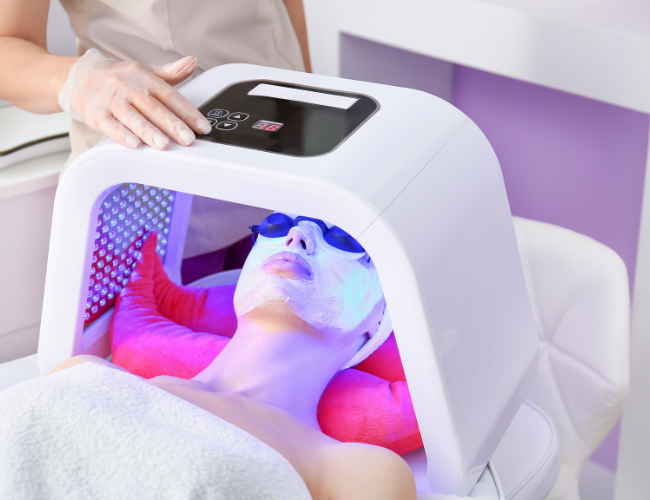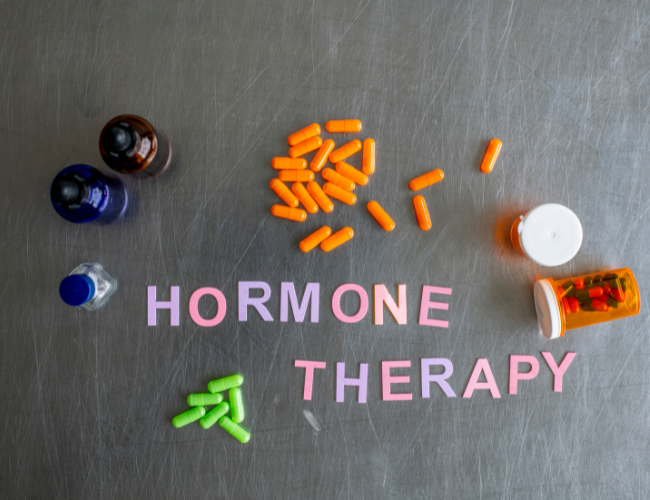People are desperately trying to live forever. From peptide treatments to cold plunges, here are the biggest anti-aging trends sweeping the nation.
While the quest to live longer has long been a focus of the world’s wealthiest entrepreneurs, these days, it’s gone mainstream.
People across the country are taking a host of prescription pills like Metformin, seeking out treatments like peptide injections, and implementing a range of behavioral practices in the hopes of reversing aging. By 2028, the global longevity market is expected to reach close to $183 billion, according to a market report by business intelligence firm Grand View Research.
Research shows that several of these trends can slow down the process of cellular aging, increase cognitive function, and even delay the onset of chronic diseases. Still, it’s important to view any of these practices simply as tools, similar to “hammers or screwdrivers,” that are neither inherently good nor bad, said Dr. Anant Vinjamoori, the chief medical officer at longevity-focused healthcare company, Modern Age. Their value ultimately depends on the context in which they’re implemented, and it’s worth tailoring your approach to suit your individual needs, he added.
From peptide treatments to cold plunges here are some of the most popular longevity trends sweeping the country.
There is a growing body of scientific evidence that supports cold exposure as an anti-aging hack.

Whether you take a plunge into a pool of ice cold water, or try cryotherapy — which involves spending a few minutes in a below freezing chamber — cold exposure has benefits that may help slow down the clock.
Dr. Anant Vinjamoori, chief medical officer of longevity-focused healthcare company Modern Age, told Insider that cold exposure produces effective results in the short and long term.
A plunge into an ice cold bath results in “a surge in the production of neurotransmitters such as epinephrine and dopamine” which have immediate rejuvenating and energizing effects, he said.
“Over the medium to long term, there is some evidence that cold exposure may reduce systemic inflammation, which is known to be a driver of many chronic diseases,” Vinjamoori added.
Time-restricted eating has been shown to have a host of health benefits

Research does suggests that time-restricted eating patterns can result in health benefits for those with diabetes and obesity or even enhance the body’s defenses against oxidative stress.
“For me, the primary benefit of time-restricted eating is regulating circadian rhythms. Sleep quality almost always improves by limiting the consumption of calories in the evening hours,” said Modern Age’s Vinjamoori.
Try skipping the meat and adopting a plant-based diet, instead
Those who cut out animal protein— and stick to a relatively plant-based diet— are likely to live longer and healthier lives, according to studies.
David Sinclair, a Harvard Medical School professor and longevity researcher, said that high animal protein diets really only help people feel better in the short-term.
“I’m convinced, and the data shows it from population studies, that a carnivorous diet is not a longevity producing diet in the long run,” he said on an episode of “The Knowledge Project Podcast.”
In many of the world’s Blue Zones— areas where people tend to reach the age of 100— people are likely to have a relatively plant-focused diet.
Red light therapy uses LED lights or lasers to expose the body to red light— the longest wavelength of light on the visible spectrum

There is research to suggest that exposing oneself to red light for five to 20 minutes may increase production of adenosine triphosphate, which is a compound that provides and stores energy for the cells.
“While more research is needed to understand the full benefits and mechanisms of red light therapy, there is evidence to suggest it may be beneficial in improving certain skin conditions including acne, aging, hair loss, wound care, and sun damage,” dermatologist Laura Buford previously told Insider.
Supplements like NMN can help boost critical enzymes in the body to improve cellular function
NMN, or Nicotinamide Mononucleotide, is a supplement that can help boost levels of a critical coenzyme in the body called NAD+.
NAD+ plays an important role in facilitating metabolic processes and maintaining healthy cellular function.
Harvard Medical School professor Sinclair — who has studied the relationship between NAD+ and aging — said in an interview with the YouTube channel Reverse Aging Revolution that the human body uses NAD+ as “a measure of adversity.” As humans get older, NAD+ levels decrease, which mean the body’s defense enzymes and repair enzymes take a hit and humans “succumb to aging” Sinclair said.
Since NAD+ is a large molecule, it’s difficult to take it directly. Sinclair recommends taking its building blocks like B3, Nicotinamide riboside (NR), or NMN.
“What we’ve discovered in people, in clinical trials, is that the closer you get to the NAD itself, the better the boost in NAD that you get,” Sinclair said, which is why he recommends NMN.
Or try Ashwagandha, an herb that’s long been used for anti-aging in Ayurveda, an ancient system of holistic medicine originating in India

The herb, often classified as an adaptogen, has a host of health benefits that range from easing anxiety and stress to soothing arthritis to boosting cognitive function. Modern Age’s Vinjamoori said that ashwagandha has been shown in research studies to reduce cortisol, a hormone associated with stress, and improve sleep in people with insomnia.
Recent research has also shown that ashwagandha could be a promising agent in anti-aging treatments. A study published in the Journal of Clinical Medicine in 2020 found that ashwagandha may help maintain the length of the key proteins at end of chromosomes known as telomeres. Telomeres are often shortened in the process of DNA replication which has been pointed to as the main factor that “speeds up cell ageing and promotes degeneration processes” the study noted.
People that are serious about aging are also turning to prescription pills like Metformin
Metformin, a pill prescribed for diabetes, is increasingly being used by biohackers as a way to improve how humans age, and slow the onset of diseases like cancer, cognitive decline, and vision loss.
The drug helps regulate blood sugar and decrease appetite, essentially giving the metabolism a boost and stimulating a cellular clean-up process known as autophagy, Insider reported.
In his book Lifespan, Harvard professor Sinclair said he takes a gram of metformin every morning along with his yogurt in the hope that it will regulate his metabolism and help his organs remain younger and healthier, Insider reported.
OpenAI CEO Sam Altman also said his personal anti-aging regimen includes metformin.
And Rapamycin, an immunosuppressive drug used to help treat some cancers
It’s also used in kidney transplants to help the an organ recipient’s body accept new kidneys, Insider reported.
The pill can slow down cellular growth and reproduction which means it might be a way for to “turn down troublesome age-related inflammation” which can contribute to age-related diseases like cancer and Alzheimer’s, Insider reported.
Insider reported that researchers have already seen rapamycin slow aging in flies, crustaceans, yeast, mice. In humans, studies have shown that it may help improve immune function, especially in older adults, Insider said.
Despite its potential to be a “fountain of youth” no one has really nailed down the right way to regulate the drug for aging, Insider said.
Matt Kaeberlein, a longevity researcher studying rapamycin’s effects on humans, previously told Insider “the doses that people are taking off-label are all over the place,” adding that, “it’s the wild west.”
Treatments like hormone therapy, in the form of pills or injections, have also surged in popularity

The body’s balance of hormones can shift with age and spur a variety of age-related conditions like weight gain, mood swings, fatigue, and lower sex drive, two longevity-focused doctors told Insider. As a result, they’ve seen an increasing patient interest in hormone therapy.
Modern Age’s Vinjamoori told Insider that testosterone replacement has gained popularity among men and women as its become clear that optimal testosterone levels can impact mood, libido, and even metabolism.
“The importance of testosterone for women, in particular, is underappreciated— testosterone is actually the most abundant hormone in a woman’s body and is the first hormone to decline with age,” Vinjamoori told Insider.
It’s not just testosterone, but also sex hormones like estrogen and progesterone that are being sought out by patients. Vinjamoori said the options for hormone therapy range from pills to creams to patches to pellets.
Peptides are another buzzy anti-aging treatment these days.
Peptides, a broad class of anti-aging and performance enhancing treatments, have taken off in recent years among body builders, athletes, and biohackers.
They’re essentially short chains of amino acids that neuroscientist Andrew Huberman has described as a “new kind of wedge in between supplements and prescription pills.” Some of the most popular peptide treatments are ones that release human growth hormone and can improve fat loss and muscle repair.
“Indeed, biohackers are very excited about it because you can practically make your body do certain things,” Christian Angermayer, a major investor in the longevity sector previously told Insider.
Source: Businessinsider


